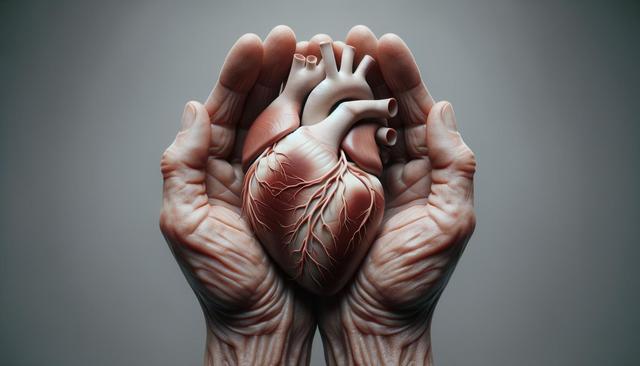Understanding Congestive Heart Failure
Congestive heart failure (CHF) is a chronic condition where the heart struggles to pump blood effectively, leading to a buildup of fluid in the lungs and other parts of the body. It often develops over time and can result from various underlying issues such as coronary artery disease, high blood pressure, or previous heart attacks. Being aware of the early signs allows for timely medical intervention and can significantly improve outcomes. CHF doesn’t usually happen suddenly; instead, the symptoms develop gradually, making early recognition critical.
While many symptoms may seem harmless at first, they can be warning signs of a more serious condition. People often dismiss early symptoms as signs of aging or overexertion. However, when these symptoms persist or worsen, it’s essential to consult a healthcare provider. CHF is a manageable condition when caught early, and recognizing its subtle signs is the first step toward better heart health.
Shortness of Breath and Difficulty Breathing
One of the earliest and most noticeable signs of congestive heart failure is shortness of breath, especially during physical activity or when lying flat. This occurs because fluid builds up in the lungs, making it harder for oxygen to pass into the bloodstream. People might find themselves needing to sleep propped up with pillows or waking up in the night gasping for air.
Shortness of breath can present in different ways:
- Dyspnea during exertion, such as climbing stairs
- Orthopnea, or difficulty breathing while lying down
- Paroxysmal nocturnal dyspnea, which involves waking up suddenly due to breathlessness
If you notice a change in your breathing patterns that doesn’t improve with rest or persists over time, it’s crucial to speak with a medical professional. Breathlessness is often the body’s way of signaling that the heart is under strain.
Unusual Fatigue and Weakness
Another common early symptom of CHF is a persistent feeling of fatigue or weakness, even after adequate rest. The reduced ability of the heart to pump blood efficiently means that less oxygen and nutrients reach muscles and tissues, leading to decreased energy levels. This can be particularly noticeable during everyday tasks such as walking, cooking, or climbing stairs.
Fatigue associated with heart failure differs from typical tiredness in that it:
- Persists throughout the day
- Does not improve significantly with rest
- Is often accompanied by other symptoms like shortness of breath or lightheadedness
While fatigue is a common symptom of many conditions, when it occurs alongside other signs like fluid retention or difficulty breathing, it may indicate an issue with heart function. Recognizing this pattern can be key to identifying CHF early.
Swelling in the Legs, Ankles, and Abdomen
As the heart’s ability to circulate blood diminishes, fluid can begin to accumulate in the body’s tissues, a condition known as edema. Swelling, particularly in the lower extremities and abdomen, is a hallmark symptom of congestive heart failure. This symptom is often more pronounced at the end of the day or after long periods of standing or sitting.
Common areas where swelling may occur include:
- Feet and ankles
- Lower legs
- Abdomen (ascites)
Swelling due to CHF may be accompanied by a feeling of tightness in the skin or an increase in abdominal girth. It’s important to note that while occasional swelling can result from minor causes like diet or heat, persistent or worsening edema should be evaluated by a healthcare provider. Monitoring daily weight can also be helpful, as sudden increases may indicate fluid buildup.
Persistent Cough or Wheezing
A chronic cough or wheezing may be more than just a respiratory issue—it can be an early sign of CHF. When fluid builds up in the lungs due to poor heart function, it can lead to coughing, especially when lying down. The cough may produce white or pink blood-tinged mucus, which is a potential indicator of fluid accumulation in the lungs.
Be alert for respiratory symptoms such as:
- Frequent coughing, especially at night
- Wheezing or a whistling sound when breathing
- Coughing up frothy or pink-tinged phlegm
These symptoms can easily be mistaken for asthma, bronchitis, or other lung conditions, but when they occur alongside other heart failure indicators, it’s important to consider the possibility of CHF. A thorough medical evaluation, including imaging and blood tests, can help determine the underlying cause.
Increased Heart Rate and Palpitations
As the heart struggles to meet the body’s needs, it may try to compensate by beating faster, leading to a noticeable increase in heart rate or palpitations. People might describe this as a fluttering or pounding sensation in the chest. While occasional palpitations are common and usually harmless, persistent or worsening episodes can be a sign of an underlying cardiac issue.
Symptoms to watch for include:
- Resting heart rate consistently above normal
- Sensations of fluttering or skipped beats
- Dizziness or feeling lightheaded during episodes
These signs often indicate that the heart is working harder than it should. If you experience these symptoms, especially in combination with fatigue, swelling, or shortness of breath, seek medical attention. Early detection and treatment of heart rhythm irregularities can prevent further complications and improve quality of life.


